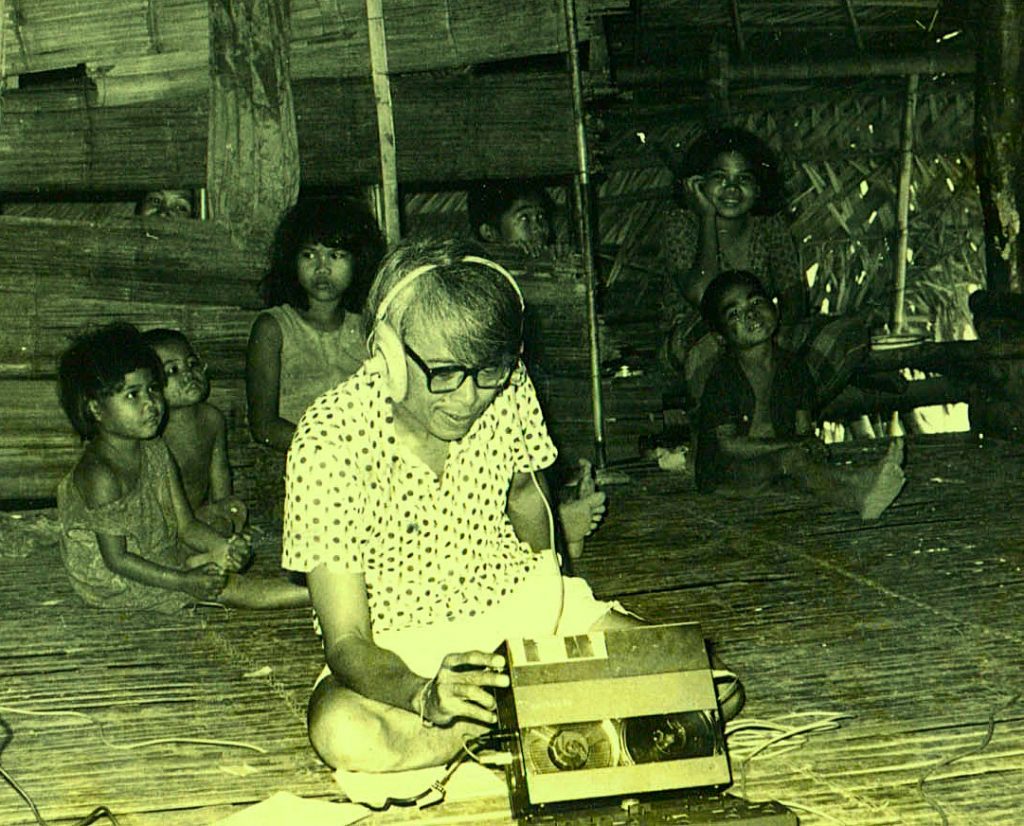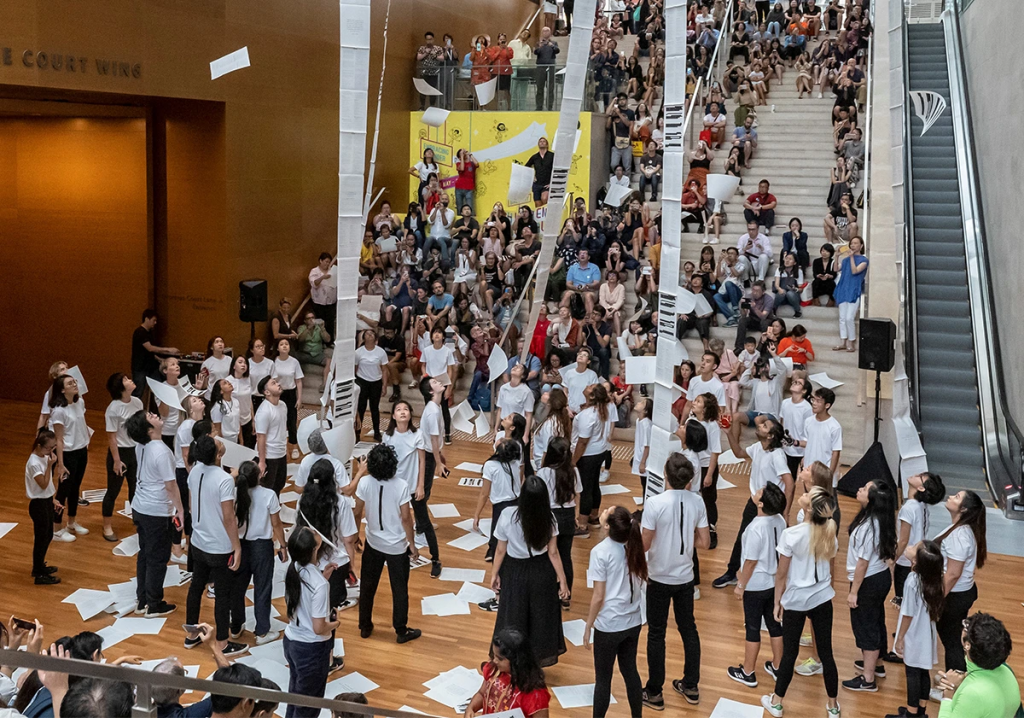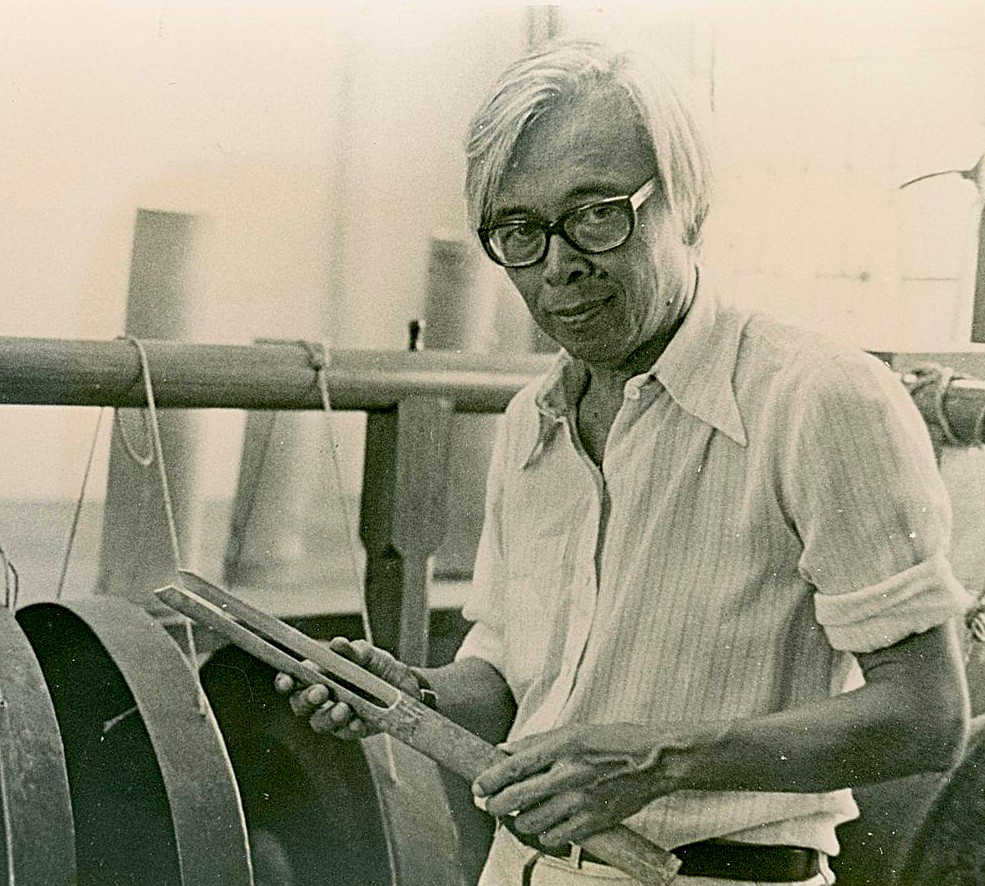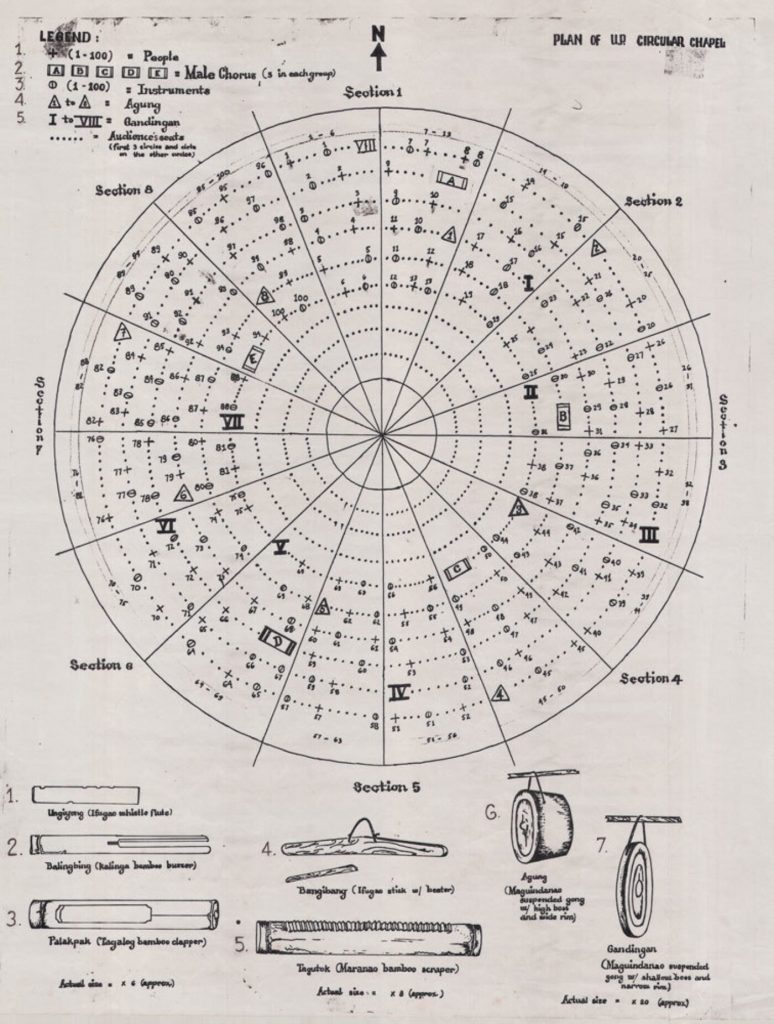
The Filipino ethnomusicologist and composer Jose Maceda created unique works that blended his fieldwork on Filipino and other music with his expertise in European avant-garde traditions. His compositions combined innovative techniques such as spatialization, a focus on timbre, and musique concrète with Asian instruments, rhythms, and structures. Maceda was particularly drawn to a flexible approach to time, famously commenting during a flight from New Zealand to the Philippines that a recording of a Chopin Berceuse was “so stiff that I wanted to jump out of the plane!”
In a 1975 paper presented at the Third Asian Composers’ League Conference and Festival in Manila, Maceda proposed a new concept of Asian musical time, inspired by natural phenomena like bird migration and plant flowering, rather than clocks, time signatures, or barlines. In 1971, he composed Cassettes 100, a performance featuring a hundred performers with portable cassette players in the lobby of the Cultural Center of the Philippines. The piece incorporated recordings of Indigenous instruments, natural sounds, and choreographed movements. As Maceda explained, “The recordings are my dictionary. They are a receptacle of ideas from which I can pull at any time.”

After graduating from the Academy of Music in Manila in 1935, Maceda continued his studies in piano with Nadja Boulanger and Alfred Cortot in Paris. He also pursued musicology at Columbia University and Queens College in New York, anthropology at Northwestern University, and ethnomusicology at Indiana University in Bloomington, as well as at the University of California, Los Angeles, where he earned his doctorate. Between 1940 and 1957, Maceda performed as a pianist in France, and during the same period, he also worked as a conductor in both the United States and the Philippines. He conducted works by composers such as Edgard Varèse, Iannis Xenakis, Pierre Boulez, and others, including pieces from China and the Philippines. In 1958, Maceda worked as a researcher at the Groupe de Recherches Musicales in Paris, where he met influential figures such as Pierre Boulez and Iannis Xenakis.

Maceda served as a professor of piano and ethnomusicology at the University of the Philippines from 1952 to 1990. He became renowned for his extensive fieldwork, which spanned diverse settings, including urban areas, remote mountain villages, and island communities across the Philippines. Maceda’s research also took him to musician communities in Sarawak (Malaysia), Thailand, Kalimantan (Indonesia), Africa, Brazil, and Australia, with his findings published in numerous international journals. His work focused on documenting Southeast and East Asian musical practices and folk traditions, particularly prehistorical Indigenous music. Maceda’s field recordings, which encompass 51 language groups and include music, instruments, photographs, text transcriptions, and translations, are archived at the University of the Philippines in Quezon City. From 1997 to 2004, Maceda served as the executive director of the UP Center for Ethnomusicology in the Department of Music Research at the university.

He received numerous prestigious scholarships and awards throughout his career, recognizing his contributions to music and ethnomusicology. He was awarded research scholarships for his work in Africa and Brazil by the Guggenheim Foundation and the Rockefeller Foundation in 1968. Maceda also received the Ordre des Palmes Académiques in France (1978), the Outstanding Research Award from the University of the Philippines (1985), the John D. Rockefeller Award from the Asian Cultural Council in New York (1987), and the Fondazione Civitella Ranieri Award in Italy (1997). In 2000, he was honored as a Filipino National Artist for Music by the Philippine government. Additionally, three of his albums–Gongs and bamboo (2001), Drone and melody (2007), and Ugnayan (2009)–were released on John Zorn’s Tzadik label.
This according to the entry on Jose Maceda in MGG Online.
Listen to excerpts of Ugnayan and Pagsamba below.


